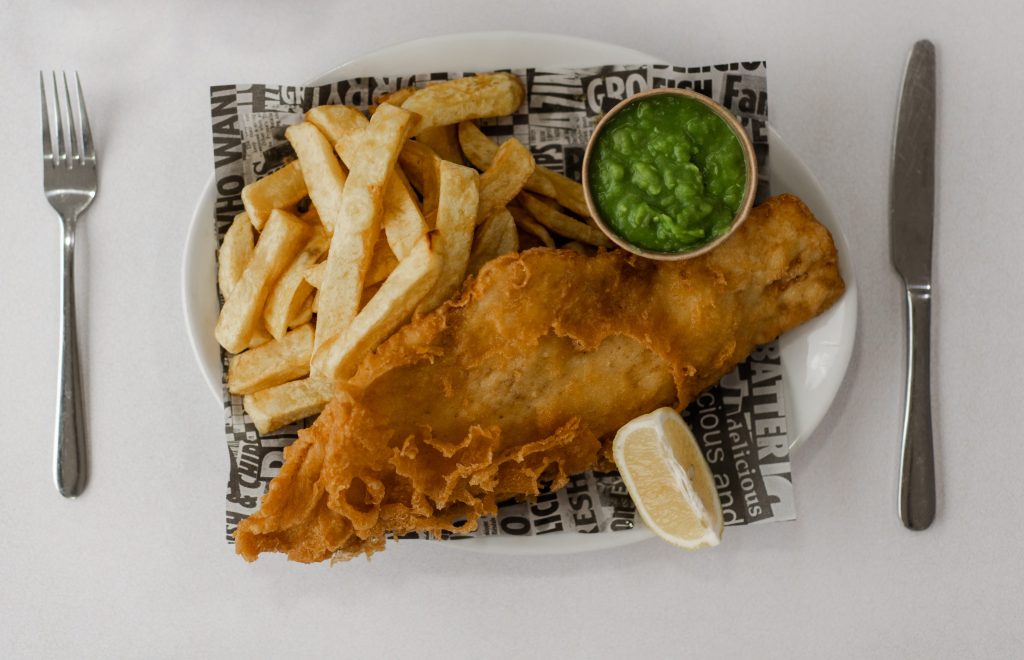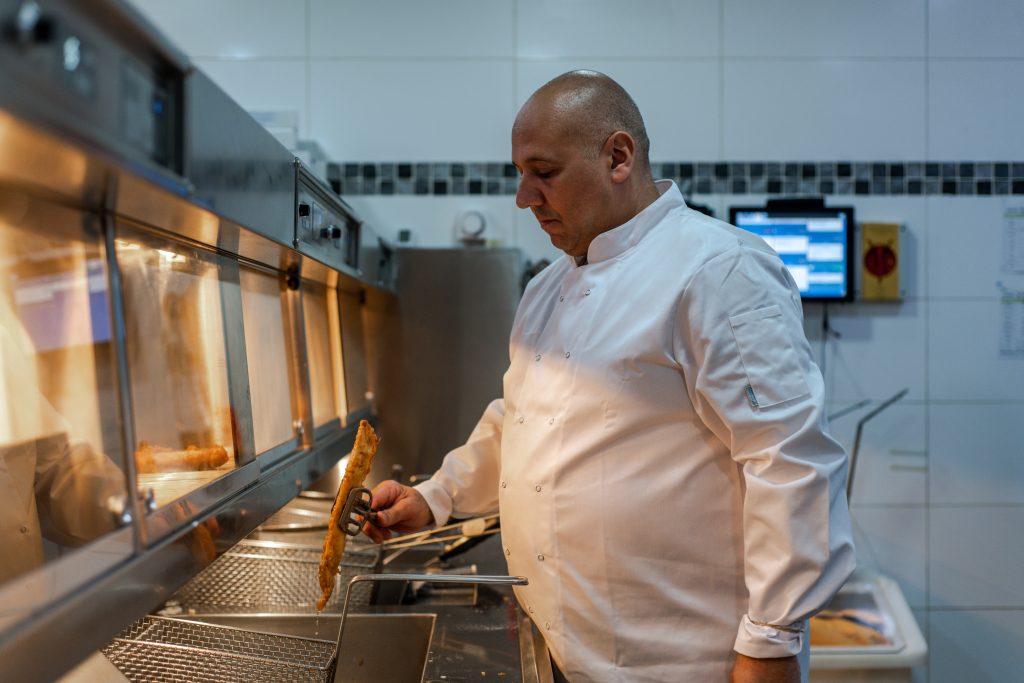- Prices of oil, fish, potatoes, and fuel have been high this year in the UK. Inflation is high, too.
- That makes for uncomfortable conditions for the owners of fish-and-chips shops.
- One owner had to raise prices by 25%. If he has to raise prices again, he might close down.
British fish-and-chips shops are raising prices and cutting their opening hours as inflation threatens their businesses, with one industry leader suggesting that one shop closes down each day.
"We've seen ups and downs, bad economies, and recessions, but the current hit to businesses is off the scale," Stratis Michael, the owner of Fryday's in Leeds in northern England, told Insider in July. "No one in the fish-and-chip-shop industry has ever seen it this bad."
Russia's invasion of Ukraine in February sent prices of a key ingredient soaring. The two countries collectively export nearly two-thirds of the world's sunflower oil, and the war has strained supplies and driven up prices.
The UN's price index for vegetable oil reached a record high in March. By the time it fell again in June, suggesting easing pressure, UK citizens were facing record inflation and a cost-of-living crisis.
To offset the rising costs, Michael told Insider he raised the price of the standard fish-and-chips order at his shop by 25% to £10, or about $12.
"Customers are already complaining it is too expensive. For small, affordable fish-and-chip shops like ours, it's a struggle to make ends meet," he said.

Michael is a part of the third generation in his family to own a fish-and-chips shop. He grew up in an apartment above his father's shop, where he helped out on weekends, he said. His grandfather opened the family's first shop in the mid-1960s.
In addition to providing his family's livelihood, fish and chips are important to many Brits' social lives, Michael said.
"It's one of the few takeaways that people go into the shop to pick up, rather than get delivered. Buying fish and chips is a social activity at heart," he said.
Meanwhile, retail fish prices have been rising at a more rapid pace in 2022, according to data from the UK's Office for National Statistics.
The UK government has also introduced a 35% tariff on direct imports of white fish from Russia and Belarus. Andrew Crook, the president of the National Federation of Fish Friers, said the tariff created an opportunity for non-Russian suppliers to push up their prices, too.
Crook, who also owns the Skippers fish-and-chips shop in Euxton in northwest England, told Insider that some shops that normally raised their prices once a year had raised them multiple times in the span of just a few months.
He has observed some customers "trading down" by swapping fish for a cheaper battered sausage — or visiting less frequently.
Then there's Britain's heat waves this summer. Record temperatures of 100 degrees Fahrenheit in July mean potato crops will be smaller, which drives up the cost of making chips.
"Sometimes, you get an expensive year for fish," Crook said. "Sometimes, you get an expensive year for potatoes. Sometimes, fuel prices might go up or you'll get staff problems. You never get everything all at once. And, unfortunately, we've got everything all at once."
Some shops are looking at reducing their opening hours to cut back on gas and electricity costs as fuel prices continue to rise, Crook said. Others, sadly, will close for good.
"Probably about 30 shops a month, so probably one a day at the moment, which is, obviously, quite worrying," Crook said of the rate at which shops were closing. "Not every business will survive."

Michael said he didn't want to raise prices again and risk losing even more customers.
"At that point, I'll have no choice but to close the shop doors and put the shutters down," Michael said.
